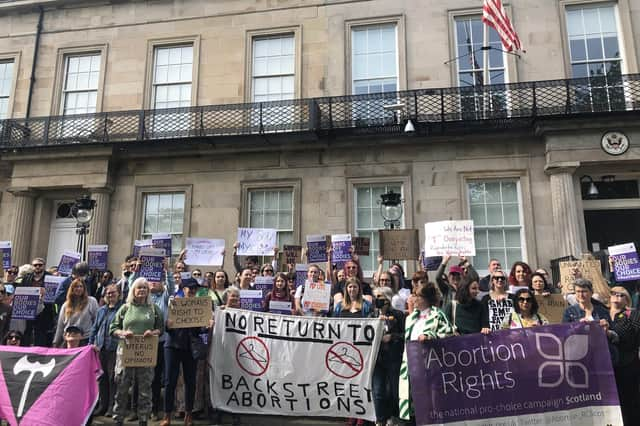Abortion rights: Retreating from deluge of bad news is sometimes necessary but flame of belief never dies – Laura Waddell


It has felt like a deluge of bad news recently. A downright downpour of depressing and violent stories in the papers. When, really, is this not the case?
But some weeks are worse than others; more claustrophobic, more dispiriting of humanity than the usual pick and mix of stories for how they resonate in particular and personal ways, and reverberate in the mind afterwards.
Advertisement
Hide AdAdvertisement
Hide AdIn the days following the Roe vs Wade judgement in America, and with protestors picketing sexual health clinics here in Scotland, it was hard not to feel dragged down by the weight of it all. Many of my friends had a tough time that week.
I am not as young as Solnit was at the start of her memoir, but I recognise the dual impulse to appear and to disappear that she describes. In fact, I can feel in my body the stress of deciding whether to speak up or clamp shut.
Over and over again comes this dilemma: is it safer to shout loudly about an injustice or abuse, or bury it deep within? Will I win or lose this time? Next time?
What happens in the fight for bodily autonomy when the body becomes stressed and fatigued, dragged tired into a fight about its rights, whether it wants to be or not?
As Solnit writes: “The fight wasn’t just to survive bodily, though that could be intense enough, but to survive as a person possessed of rights, including the right to participation and dignity and a voice. More than survive, then: to live.”
In my mid-30s, I am at an age where I have experienced cycles of hope and despair, watched social justice campaigns flare and fizzle out as well as get the wins they so deserve.
What I have learned is that sometimes it is necessary to retreat from the world, to take stock, to think. There are defeats, and there are bad weeks. But that flame of belief – in equality, in bodily autonomy – has never flickered out.
Comments
Want to join the conversation? Please or to comment on this article.

